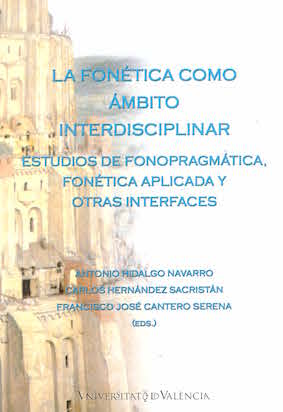La enseñanza de la entonación (des)cortés en ELE: propuestas didácticas destinadas al nivel B1
DOI:
https://doi.org/10.7203/qfilologia.19.5191 Resum
Resum
L'objectiu del present treball ha estat descobrir els trets melòdics cortesos i descortesos que utilitzen els espanyols en els seus intercanvis i així poder determinar les millores que es precisen per perfeccionar l'actuació docent d'espanyol com LE i intentar evitar els conflictes provocats per malentesos de tipus melòdic. El treball presenta els resultats obtinguts, a partir de l'anàlisi acústica de les dades i la seva validació perceptiva, i una sèrie de propostes didàctiques que considerem de gran utilitat docent.
Paraules clau: anàlisi del discurs; cortesia; didàctica; espanyol LE.
 Descàrregues
Descàrregues
Descàrregues
Publicades
Com citar
-
Resum499
-
PDF (Español)480
Número
Secció
Llicència
 Este obra está bajo una licencia de Creative Commons Reconocimiento-NoComercial-SinObraDerivada 4.0 Internacional.
Este obra está bajo una licencia de Creative Commons Reconocimiento-NoComercial-SinObraDerivada 4.0 Internacional.
Tots els documents inclosos a OJS són d'accés lliure i propietat dels seus autors i/o institucions editores, i per tant, qualsevol acte de reproducció, comercialització, comunicació pública o transformació total o parcial necessita el consentiment exprés i escrit d'aquests.
Authors who publish with this journal agree to the following terms:
- Authors retain copyright and grant the journal right of first publication with the work simultaneously licensed under a Creative Commons Attribution License that allows others to share the work with an acknowledgement of the work's authorship and initial publication in this journal.
- Authors are able to enter into separate, additional contractual arrangements for the non-exclusive distribution of the journal's published version of the work (e.g., post it to an institutional repository or publish it in a book), with an acknowledgement of its initial publication in this journal.
- Authors are permitted and encouraged to post their work online (e.g., in institutional repositories or on their website) prior to and during the submission process, as it can lead to productive exchanges, as well as earlier and greater citation of published work (See The Effect of Open Access).




